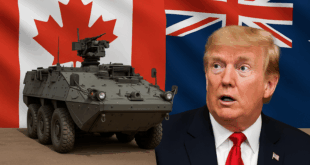The global economy is an intricate web of trade, investment, and interdependence. Any disruption in one part of the world can send shockwaves across continents. One such disruption was the trade war initiated by former U.S. President Donald Trump, which sent ripples through financial markets, supply chains, and global GDP growth.
But does this trade war have the potential to cause a full-blown global recession?
Understanding Trump’s Trade War
Trump’s trade war was primarily centered on imposing tariffs on Chinese imports, citing unfair trade practices, intellectual property theft, and the U.S. trade deficit. In response, China retaliated with tariffs on American goods. This tit-for-tat escalation led to billions of dollars in additional costs for businesses and consumers
.While the U.S.-China trade war was the most significant aspect, Trump’s administration also levied tariffs on goods from the European Union, Canada, and Mexico. These measures disrupted long-standing trade agreements and led to uncertainty in global markets.
The Economic Consequences
1. Rising Costs for Businesses and Consumers
Tariffs increased the cost of imported goods, making products more expensive for consumers. Businesses, in turn, faced higher production costs, leading to reduced profit margins and potential job losses.
2. Supply Chain Disruptions
Many multinational corporations rely on global supply chains. Tariffs and trade restrictions forced companies to restructure their supply chains, leading to inefficiencies and increased costs
3. Market Uncertainty and Investment Decline
The unpredictability of U.S. trade policies under Trump discouraged investment. Businesses postponed expansion plans due to fear of further escalation, leading to slowed economic growth.
4. Impact on Emerging Markets
Many developing economies depend on trade with China and the U.S. The slowdown in these major economies had a spillover effect, causing declines in exports and economic activity in countries like Brazil, India, and South Korea.5.
Retaliatory Measures and Global Slowdown
Countries affected by U.S. tariffs imposed their own countermeasures. This trade conflict led to reduced global trade volumes, with organizations like the International Monetary Fund (IMF) warning of slowing global growth.
Could It Lead to a Global Recession?
While the trade war significantly slowed down global economic growth, it alone may not be enough to trigger a full-scale recession.
However, when combined with other economic stressors—such as high debt levels, financial market volatility, and geopolitical tensions—it could act as a catalyst for a broader economic downturn.
By the end of Trump’s presidency, some trade tensions had de-escalated, but uncertainty remained.
If similar trade policies continue, the risk of a recession could increase, particularly if major economies fail to adapt to shifting trade dynamics.
 Top Trends Blogs Trending Blogs – Latest News
Top Trends Blogs Trending Blogs – Latest News

